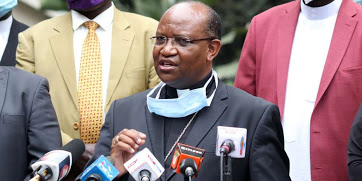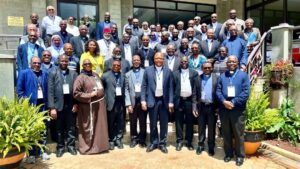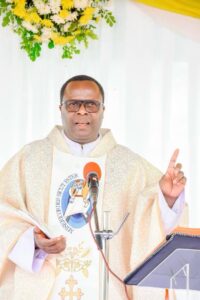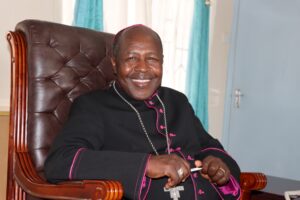KENYA: Interfaith Council on Coronavirus Pandemic Reiterates President’s Call to Suspend In-Person Worship in Some Counties

Sr. Jecinter Antoinette Okoth, FSSA
Following the urgent ban of gatherings in some parts of the country by Kenya’s President Uhuru Kenyatta due to increase in Covid-19 positivity rate, members of the Interfaith Council for National Response to Coronavirus Pandemic have revised the directives issued mid-March where they noted, “We will continue to have controlled worship gatherings,” and asked citizens in the five counties where lockdown has been imposed to “revert to on-line worship.”
“In the counties where a lockdown has been ordered (Nairobi, Kajiado, Kiambu, Machakos and Nakuru), the prohibition of gathering includes worship gatherings. Therefore, we will not have in-person worship for the period of the restriction,” Interfaith Council members said in their collective statement issued Saturday, March 27, a day after the Head of State addressed the nation.
In their statement the Council chaired by Archbishop Anthony Muheria of Nyeri Catholic Archdiocese noted that in spite of being hopeful to contain the Coronavirus, the third wave of Covid-19 infection that has been confirmed in the country,” has not abated its aggression.”
“As His Excellency the President has expressed in his speech, we are now at a very critical point. On one hand because the cases are increasing and the number of deaths rising, and on the other, because we are close to the limit of the capacity of our health facilities,” the Religious leaders disclosed.
According to Interfaith members, “Each faith community will organize to have their worship relayed online for the benefit of the congregants” while “The leaders of the various worship services will be allowed to run the on-line service, with the number of people needed for the transmission that should not exceed 15 persons and the worship should not exceed one hour.”
Additionally, the Religious leaders in their statement asked religious communities with their leaders to be innovative and continue giving hope as well as spiritual and human support to the congregants especially to the sick or the bereaved with their families, using the available means of communication.
All the occasions they said, should be used to sensitize and convince congregants of the real threat of a total crisis “should we not take seriously our responsibility to comply with the guidelines and protocols issued by the Interfaith Council and the Ministry of Health,” thus the need for stringent compliance to the provided measures.
“Besides the hygiene indications, great care should be observed in the regions not under restrictions, in the upcoming Holy festivities of Easter and Ramadhan, to truly reduce the number of congregants by offering more services with reduced numbers,” reads part of the Interfaith Council statement.
Acknowledging that the current Covid-19 surge has greatly interfered with the normal worship traditions, the Council members who were mandated by the President to develop stringent protocols for phased re-opening of places of worship highlighted, “Saving lives comes ahead of our aspirations to our normal worship.”
Meanwhile echoing the President’s and the Interfaith Council Members’ message on the caution given to the locked-down Counties, members of the Kenya Conference of Catholic bishops (KCCB) have urged the “parish priests and all Christ faithful in the (said) counties to be extra vigilant in prevention of the spread of the virus.”
“In the rest of the counties, every Bishop will apply prudence according to the situation in his locality, bearing in mind the safety of the Christians and the priests in order to curb the spread of the Coronavirus,” the Prelates said in their collective statement signed by the Chairman Archbishop Philip Arnold Anyolo of Kisumu Archdiocese.
In their statement dated Saturday, March 27, the Bishops further urged Kenyans to go for vaccination saying, “We also encourage the Christ faithful and all Kenyans to embrace and take positive advantage of the vaccines in order to build the required immunity,” for protection.


